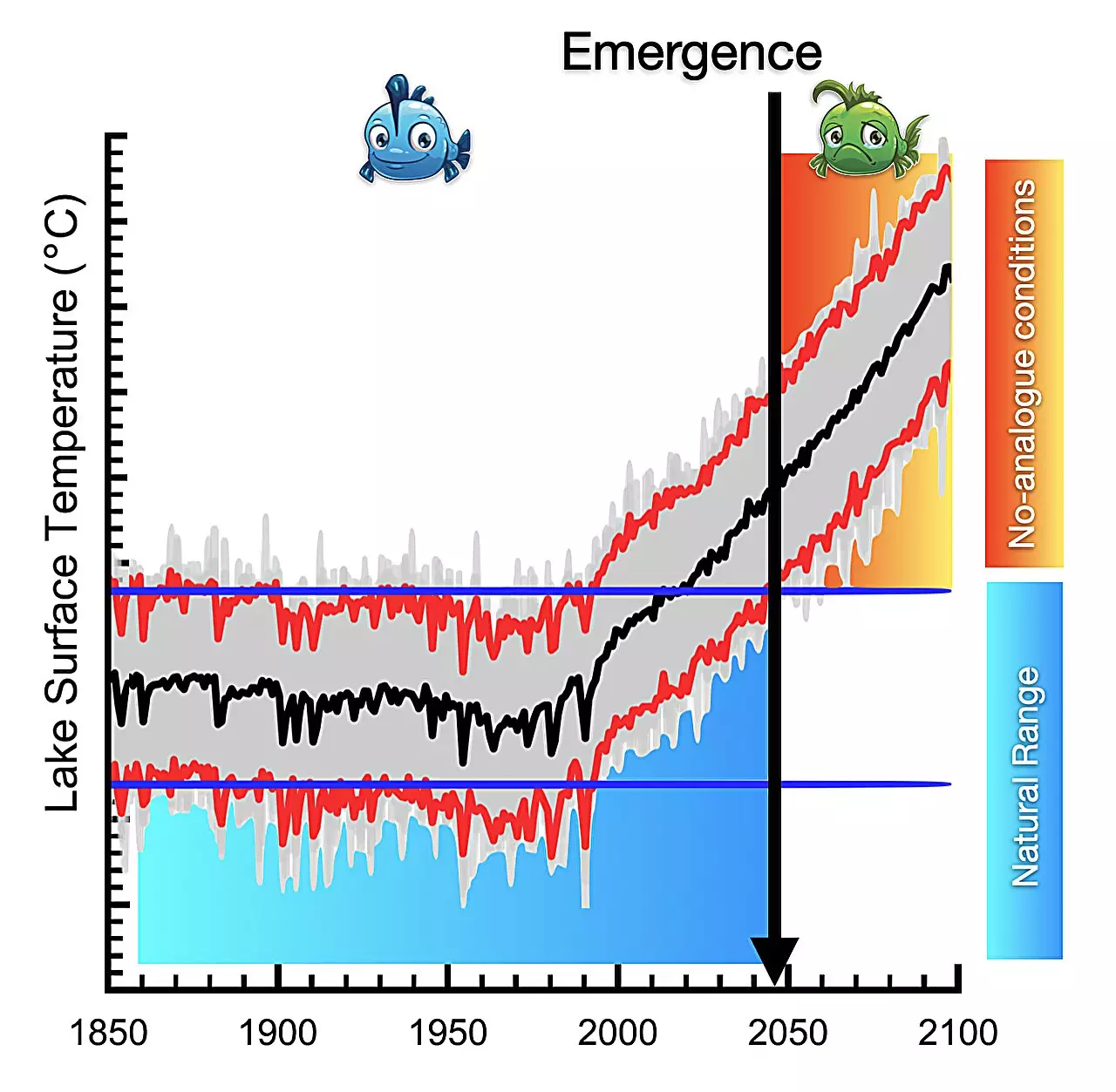Lakes are often celebrated as reservoirs of life, teeming with unique biodiversity and providing essential ecological services. However, recent findings reveal a dire situation: lakes across the globe are undergoing rapid temperature increases, a problem that could have devastating implications for their ecosystems. An international research team has published a groundbreaking study in Nature Geoscience that unveils how anthropogenic climate change threatens to push these vital water bodies into uncharted thermodynamic territory. The researchers utilized an advanced climate model, the Community Earth System Model (version 2), to analyze lake temperature data from 1850 to 2100 and provide unprecedented insights into this ongoing crisis.
A Revolutionary Approach to Climate Modeling
What sets this study apart is its innovative modeling technique. Unlike previous models that projected future scenarios based on singular simulations, this research employed an ensemble of 100 simulations, each representing a different facet of natural climate variability while incorporating the effects of human-induced warming. This method allows for a nuanced understanding of how natural and anthropogenic factors influence lake temperatures over time. Utilizing the rapid computing power of South Korea’s Aleph supercomputer, the authors were able to disentangle the complexities surrounding lake temperature changes, making it possible to identify when these water bodies would experience unprecedented ‘no-analog conditions’—a state where current thermal regimes won’t match any historical data.
The Global Implications of No-Analog Conditions
Dr. Lei Huang, the lead author of the study, underscores the urgency of the findings, noting that by the end of this century, lakes worldwide will be subjected to climates that are entirely unprecedented. The timing of these changes, however, will differ significantly between regions. Tropical lakes, which boast rich ecosystems, are projected to be the first victims of extreme thermal conditions as global warming escalates to around 2.4°C above pre-industrial levels. What’s particularly alarming is that merely focusing on surface temperatures does not paint the complete picture; many lake organisms can migrate vertically within the water column to evade thermal stress, but this adaptability has its limits.
Understanding Depth and Ecology
According to Dr. Iestyn Woolway, one of the authors of the study, the synchronous emergence of no-analog conditions in the subsurface layers of tropical lakes is particularly concerning. He notes that these layers can be rapidly affected by surface warming, especially during routine mixing events that may occur in these systems. Conversely, lakes in higher latitudes may experience a delay in the realization of no-analog conditions at depth, primarily because of thermal stratification that offers some degree of insulation from surface warming impacts. This stark difference highlights the complexity and diversity of lake ecosystems, and understanding these variations is crucial for effective conservation and management strategies.
Projected Consequences and Action Needed
The study projects that the adverse effects of no-analog lake conditions could lead to drastic disruptions within freshwater ecosystems. Unlike terrestrial and marine life, lake organisms have limited mobility and face significant challenges in seeking more favorable habitats as their environments rapidly change. Consequently, comprehending the timing of this critical transition is essential for implementing adaptation strategies, climate mitigation efforts, and informed planning.
As climate change continues to escalate, the implications extend beyond biodiversity; they threaten the integrity of the ecological services lakes provide—services that humans rely on for resources like drinking water and fisheries. In light of this urgent situation, it’s essential that stakeholders, including policymakers and environmental activists, prioritize lakes in climate dialogues. We can no longer afford to ignore the complexities entwined with lake ecosystems, as they reflect the broader climate narrative we must confront. With no time to waste, an effective, science-driven response is crucial in the fight to protect our lakes and, by extension, our planet.


Leave a Reply